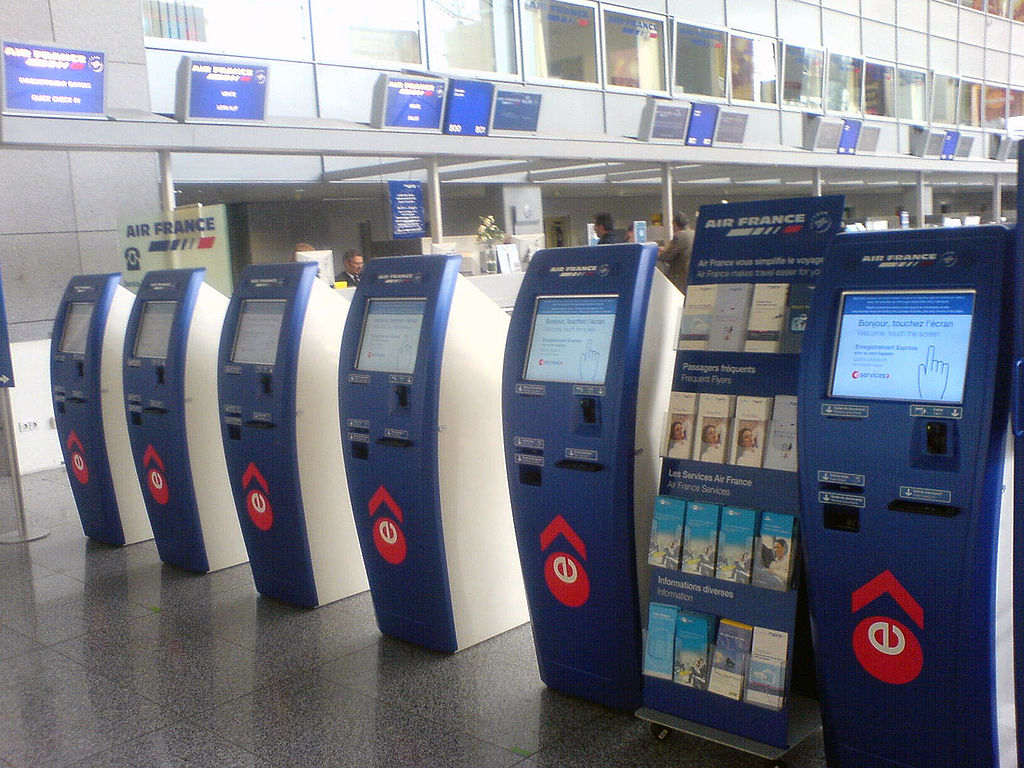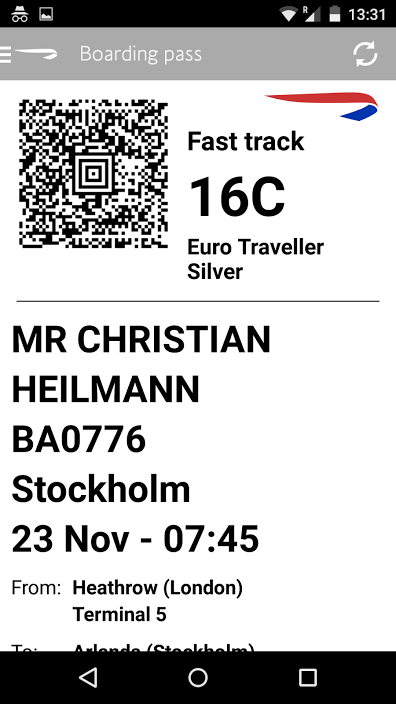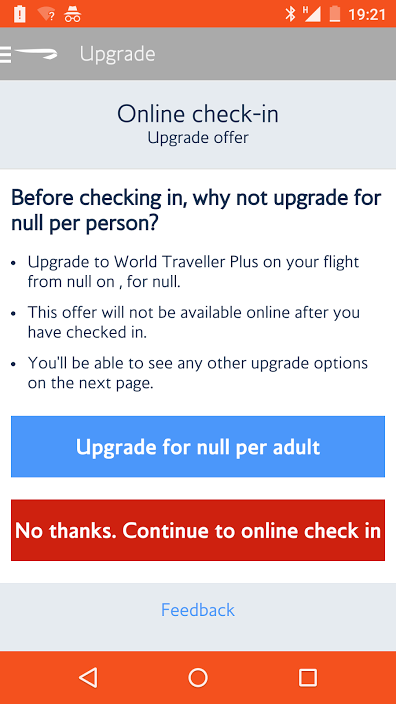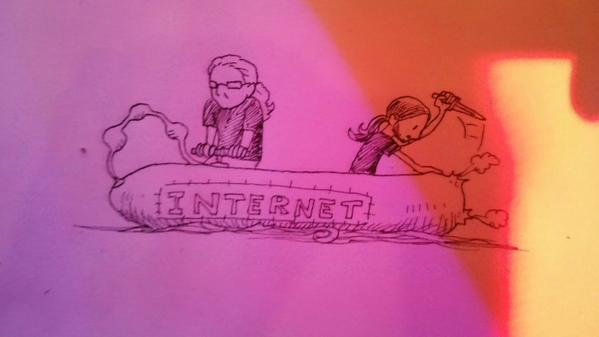That one tweet…
Saturday, May 30th, 2015One simple tweet made me feel terrible. One simple tweet made me doubt myself. One simple tweet – hopefully not meant to be mean – had a devastating effect on me. Here’s how and why, and a reminder that you should not be the person that with one simple tweet causes anguish like that.

Beep beep, I’m a roadrunner
As readers of this blog, you know that the last weeks have been hectic for me:
I bounced from conference to conference, delivering a new talk at each of them, making my slides available for the public. I do it because I care about people who can not get to the conference and for those I coach about speaking so they can re-use the decks if they wanted to. I also do a recording of my talks and publish them on YouTube so people can listen. Mostly I do these for myself, so I can get better at what I do. This is a trick I explained in the developer evangelism handbook – another service I provide for free.
Publishing on the go is damn hard:
- Most Wi-Fi at events is flaky or very slow.
- I travel world-wide which means I have no data on my phone without roaming and such.
- Many times uploading my slides needs four to five attempts
- Creating the screencast can totally drain the battery of my laptop with no power plug in sight.
- Uploading the screencast can mean I do it over night.
The format of your slides are irellevant to these issues. HTML, Powerpoint, Keynote – lots of images means lots of bytes.
Traveling and presenting is tough – physical space still matters
Presenting and traveling is both stressful and taxing. Many people ask me how I do it and my answer is simply that: the positive feedback I get and seeing people improve when they get my advice is a great reward and keeps me going. The last few weeks have been especially taxing as I also need to move out of my flat. I keep getting calls by my estate agent that I need to wire money or be somewhere I can not. I also haven’t seen my partner more than a few hours because we are both busy.
I love my job. I still get excited to go to conferences, hear other presenters, listen to people’s feedback and help them out. A large part of my career is based on professional relationships that formed at events.
The lonely part of the rockstar life

Being a public speaker means you don’t spend much time for yourself. At the event you sleep on average 4-5 hours as you don’t want to be the rockstar presenter that arrives, delivers a canned talk and leaves. You are there for the attendees, so you sacrifice your personal time. That’s something to prepare for. If you make promises, you also need to deliver them immediately. Any promise of you to look into something or contact someone you don’t follow up as soon as you can piles up to a large backlog you have a hard time remembering what it is you wanted to find out.
It also can make you feel very lonely. I’ve had many conversations with other presenters who feel very down as you are not with the people you care about, in the place you call home or in an environment you understand and feel comfortable in. Sure, hotels, airports and conference venues are all lush and have a “jet set” feel to them. They are also very nondescript and make you feel like a stranger.
Progressive Enhancement discussions happen and I can’t be part of it!
I care deeply about progressive enhancement. To me, it means you care more for the users of your products than you care about development convenience. It is a fundamental principal of the web, and – to me – the start of caring about accessibility.
In the last few weeks progressive enhancement was a hot topic in our little world and I wanted to chime in many a time. After all, I wrote training materials on this 11 years ago, published a few books on it and keep banging that drum. But, I was busy with the other events on my backlog and the agreed topics I would cover.
That’s why I was very happy when “at the frontend” came up as a speaking opportunity and I submitted a talk about progressive enhancement. In this talk, I explain in detail that it is not about the JavaScript on or off case. I give out a lot of information and insight into why progressive enhancement is much more than that.
That Tweet
Just before my talk, I uploaded and tweeted my deck, in case people are interested. And then I get this tweet as an answer:
It made me angry – a few minutes before my talk. It made me angry because of a few things:
- it is insincere – this is not someone who has trouble accessing my content. It is someone who wants to point out one flaw to have a “ha-ha you’re doing it wrong” moment.
- the poster didn’t bother to read what I wrote at all – not even the blog post I wrote a few days before covering exactly the same topic or others explaining that the availability of JS is not what PE is about at all.
- it judges the content of a publication by the channel it was published on. Zeldman wrote an excellent piece on this years ago how this is a knee-jerk reaction and an utter fallacy.
- it makes me responsible for Slideshare’s interface – a service used my many people as a great place to share decks
- it boils the topic I talked about and care deeply for down to a simple binary state. This state isn’t even binary if you analyse it and is not the issue. Saying something is PE because of JavaScript being available or not is the same technical nonsense that is saying a text-only version means you are accessible.
I posted the Zeldman article as an answer to the tweet and got reprimanded for not using any of the dozens available HTML slide deck versions that are progressively enhancing a document. Never mind that using keynote makes me more effective and helps me with re-use. I have betrayed the cause and should do better and feel bad for being such a terrible slide-creator. OK then. I shrugged this off before, and will again. But, this time, I was vulnerable and it hurt more.
Siding with my critics
I addition to me having lot of respect of what Yehuda achieved other people started favouriting the tweet. People I look up to, people I care about:
- Alex Russel, probably one of the most gifted engineers I know with a vocabulary that makes a Thesaurus blush.
- Michael Mahemoff, always around with incredibly good advice when HTML5 and apps where the question.
- My colleague Jacob Rossi, who blows me away every single day with his insight and tech knowledge
And that’s when my anger turned inward and the ugly voice of impostor syndrome reared its head. Here is what it told me:
- You’re a fool. You’re making a clown of yourself trying to explain something everyone knows and nobody gives a shit about. This battle is lost.
- You’re trying to cover up your loss of reality of what’s needed nowadays to be a kick-ass developer by releasing a lot of talks nobody needs. Why do you care about writing a new talk every time? Just do one, keep delivering it and do some real work instead
- Everybody else moved on, you just don’t want to admit to yourself that you lost track.
- They are correct in mocking you. You are a hypocrite for preaching things and then violating them by not using HTML for a format of publication it wasn’t intended for.
I felt devastated, I doubted everything I did. When I delivered the talk I had so looked forward to and many people thanked me for my insights I felt even worse:
- Am I just playing a role?
- Am I making the lives of those who want to follow what I advocate unnecessarily hard?
- Shouldn’t they just build things that work in Chrome now and burn them in a month and replace them with the next new thing?
Eventually, I did what I always do and what all of you should: tell the impostor syndrome voice in your head to fuck off and let my voice of experience ratify what I am doing. I know my stuff, I did this for a long time and I have a great job working on excellent products.
Recovery and no need for retribution
I didn’t have any time to dwell more on this, as I went to the next conference. A wonderful place where every presentation was full of personal stories, warmth and advice how to be better in communicating with another. A place with people from 37 countries coming together to celebrate their love for a product that brings them closer. A place where people brought their families and children although it was a geek event.
I’m not looking for pity here. I am not harbouring a grudge against Yehuda and I don’t want anyone to reprimand him. My insecurities and how they manifest themselves when I am vulnerable and tired are my problem. There are many other people out there with worse issues and they are being attacked and taken advantage of and scared. These are the ones we need to help.
Think before trying to win with a tweet
What I want though is to make you aware that everything you do online has an effect. And I want you to think next time before you post the “ha-ha you are wrong” tweet or favourite and amplify it. I want you to consider to:
- read the whole publication before judging it
- question if your criticism really is warranted
- wonder how much work it was to publish the thing
- consider how the author feels when the work is reduced to one thing that might be wrong.
Social media was meant to make media more social. Not to make it easier to attack and shut people up or tell them what you think they should do without asking about the how and why.
I’m happy. Help others to be the same.
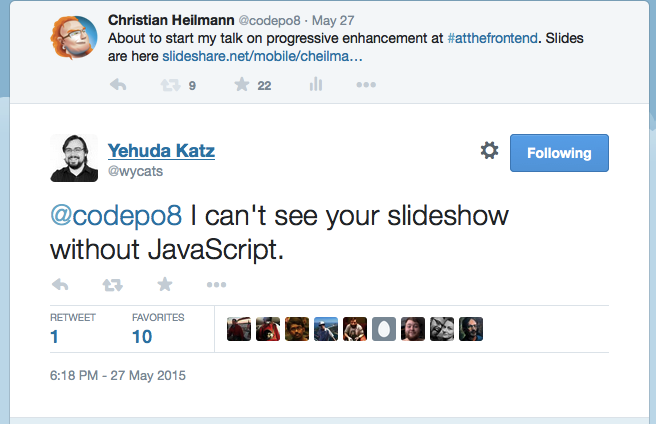
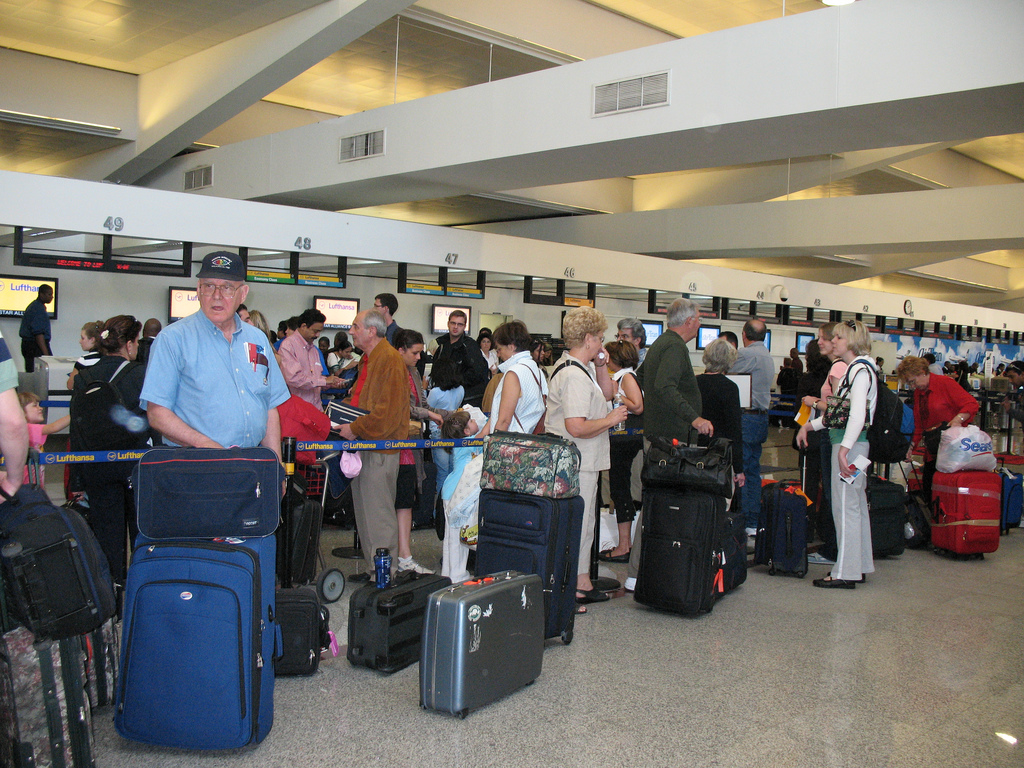 Photo by James Emery
Photo by James Emery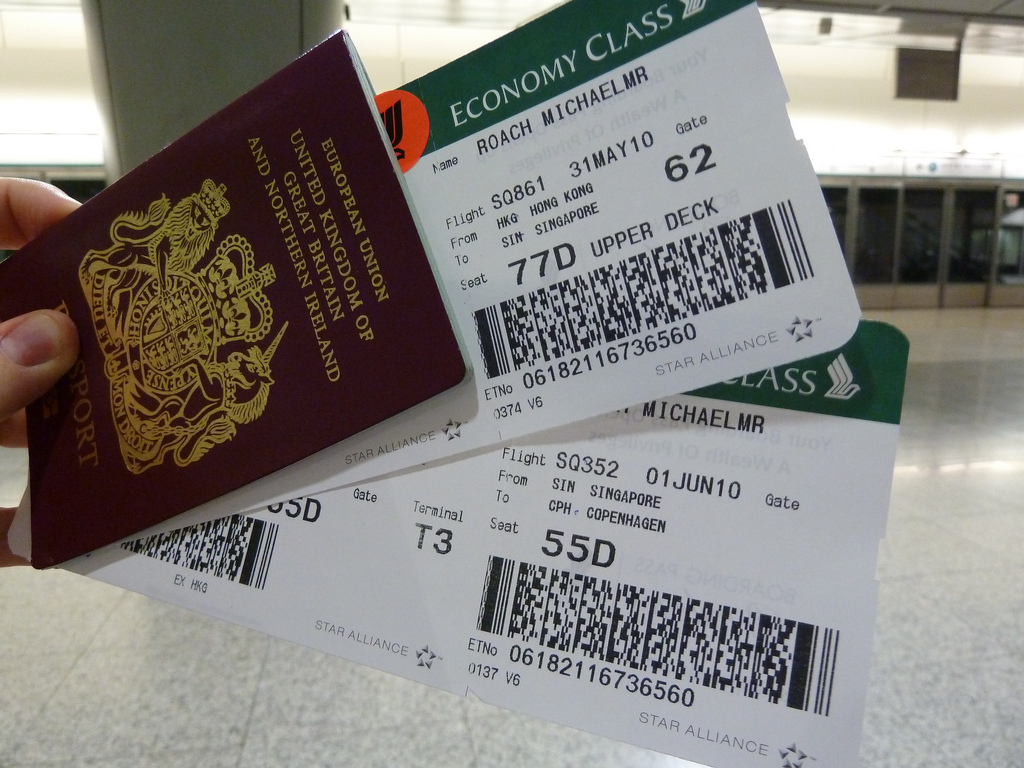 Photo by mroach
Photo by mroach